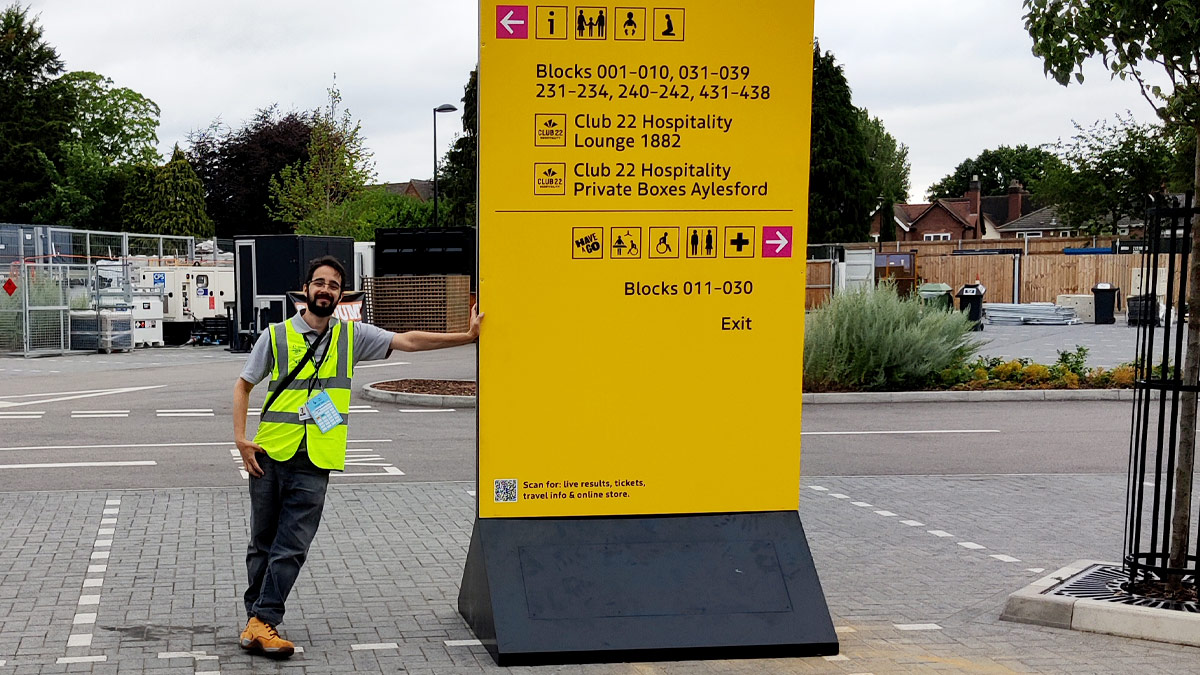Frederico's journey highlights the importance of having a relevant degree, building a strong network whist at university, and receiving invaluable early teaching support.
He is currently making waves as a wayfinding designer at Populous, an architectural design firm in London, but his career didn't start there. He originally worked in marketing but took a detour into wayfinding while working at a construction company in Brazil.
Driven by this newfound passion, Frederico applied to study Information Design at the University of Reading. He found the experience enriching and valuable. He notes, "The course content was incredibly useful, especially for the career I had in mind."
While working on his dissertation, Frederico seized an opportunity that came his way. Colette Jeffrey, the current Sign Design Society chair and examiner at Reading, shared a job opening for the 2022 Commonwealth Games in Birmingham. Frederico's impressive portfolio and skills developed on the course and his eagerness to apply his knowledge in a real-world setting earned him the position. He then went on to work for the World Cup in Qatar where he was part of the installation management team. Joan Zalacian, Wayfinding lecturer, notes, "He's had a very successful career, from the course all the way up to working in London in a design agency, which is amazing"
Frederico highlighted the importance of networking and discussed how being associated with the University of Reading has helped his career. "I got the Commonwealth job thanks to the network. Being associated with the University of Reading carries weight, especially in an industry as tight-knit as ours. There have been many times where I've been told, 'Oh, I worked with a Reading graduate on this particular project."
When asked why wayfinding, he explained the complexity of such projects, emphasising that it involves more than just signage design. "There's so much detail that goes into wayfinding. It's not just about making a sign. It's also about where to place it strategically within the building or the space," he said. "What's really satisfying for me is seeing the physical realisation of what you've designed in the real world."
